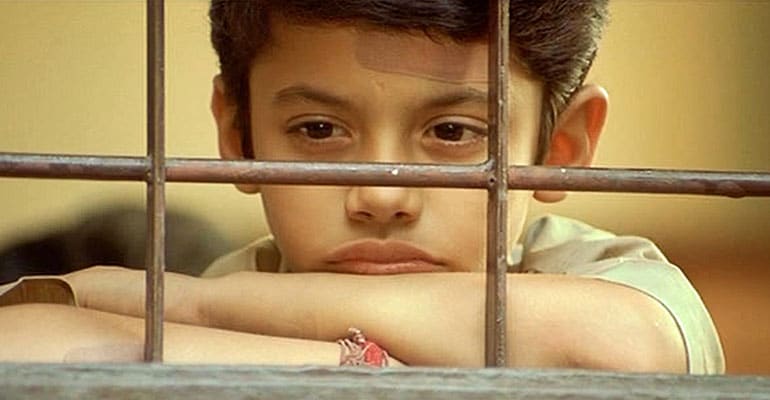A small Asian country, in the midst Himalayan ranges, measures the success of the nation through happiness instead of economy. Yes, you guessed it right—it is Bhutan, the most peaceful Buddhist kingdom in the world. They resisted worldly attachments, technology, and most importantly constrained the influence of bad news on the citizens for a long time.
In case you are wondering why I am mentioning Bhutan instead of talking about kids, then your question is fair, but do read between the lines. If a nation emphasizes on keeping its citizens happy since they are born, imagine how much this act impacts kids growing up in Bhutan.
Is Happiness a Choice for Kids?
As you start adulting, you may come across the phrase “Happiness is a choice,” and it is applicable for adults who eagerly take help of tips and tricks to manipulate their mind in accepting happiness is a choice, not a feeling.

In my opinion, one cannot force a “feeling” on a kid. One, they are not robots that we can program them, and second, they are at a growing stage of their life- learning and developing each moment. If the dog dies, your kid has the right to cry and experience a brief moment of grief. However, staying happy can be related to their everyday life where seeing a friend in a Mercedes C class does not bring unhappy feelings.
Parents always desire kids to build a state of mind where they aspire for great things in life, not worrying but aiming with a positive attitude. And, this attitude can only be built when they learn not to complain and feel HAPPY about what they have.
So, we request parents, not only in “Bhutan” but in the rest of the world, to instill thoughts of happiness in kid’s not as a choice but triggered by their subconscious mind.
6 ways I learned to be happy in my childhood days
Plant the seeds of positive thoughts in their growing minds and reap the magic in a few years. So, here are some crucial life lessons you can offer children today to nurture them into happy adults.
1. A small act of kindness
Many of us talk and hear about a random act of kindness but rarely get the opportunity to attempt it. Do you know why? Because we never learned to enjoy it. Our minds were too busy thinking about how can I get the best college, best girlfriend, best this, best that, and the list never came to an end.
Mother Teresa said, “We cannot do great things on this earth, only small things with great love.” And, it entirely made sense.

The reason “small actions of giving” work is because it releases energy in the body which makes you feel better and gives you a chance of looking beyond your own selfish needs.
Kids can begin the practice by simply;
- Complementing someone,
- Passing a kind smile to the security guard or elders in the colony,
- Giving seasons greeting to every individual they come across, even if it is the domestic help,
- Lending help to old citizens,
- Meet a friend who fell sick or fractured their bone.
And this list can just go on, but a great way to start with these few. No?
2. Lessons of Gratitude
Instilling the sense of gratitude is not only a good habit but extremely essential in today’s rat race. And according to experts, the attitude of gratitude is healthy for human beings. It increases our happiness level manifolds.
Before children learn to start being ambitious, teach them to “Count their blessings.” Every morning and before bedtime, ask them to be grateful and say a simple “Thank You” for all the essentials they are blessed with.
Thank the almighty for basic needs like clean air, drinking water, a bed to sleep, and food to eat. Art of saying “Thank you” for all achievements helps in creating a sense of fulfillment.
To strengthen the lesson of gratitude, make them visit an orphanage, old age home or an NGO for kid’s welfare and help them realize how much they have which many children barely afford.
Satisfaction is a beautiful feeling; it unknowingly enhances the physical and mental health of our body.
2. Smell the roses
Most of us millennials are busy working hard to achieve the next thing in our bucket list. But did we enjoy where we are? Did we appreciate each road we took on the last trip? No, we didn’t, because we were too occupied worrying for the next thing in life and never got the chance to appreciate what we had.
Appreciation is a very tricky job, but if attempted, it makes the heart light. The moment you start appreciating something or an event, you get absorbed in the experience and automatically begin smiling. But mostly you pause for the moment to enjoy. On your next family vacation, push your kids to pause and smell the roses. Enjoy each moment and appreciate whatever they see fully.
3. Encourage efforts, not perfection
Your kid may not ace every school competition, but did you appreciate their participation? Did you encourage them to try again? No, you didn’t?
According to child experts, you boost your kid’s self-esteem by appreciating their efforts. Not only do you release happy hormones in their petite minds, but you also motivate them to TRY again.

When a positive thought is ingrained in a kid’s mind, you can see positive results and more importantly, a happy state of mind.
4. Laughter is definitely the best medicine
Have you met people who laugh loudly and throw themselves around? Or did you grow up with two-three comedians in your inner circle of friends? If yes, have you ever analyzed why you liked their company?
Laughing, cracking jokes or changing every situation into a funny element lightens the mood of a group. Naturally, kids will love spending time with people who are light-hearted and don’t take life very seriously.
Your kids need to learn how to laugh and enjoy laughing loudly without feeling ashamed. Trust me, sharing a good laugh with kids is the best pill you can feed them and they will eventually grow into sincere but positive human beings.
5. Exposure to Social Media is bad
This is one matter which I was finding difficulty writing because I used to spend more than half of my days on the cell phone. Gradually realizing, it was harming me more than making me happy. I used to feel depressed and sad, seeing others having the best time of their life while I was making ends meet. (Oh, I don’t think that way anymore, I will tell you how).
If your kids don’t get exposure to what’s happening around, they won’t feel upset. Simple! But considering the peer pressure, they will be on social media and make the same mistake as I did.
So, I will recommend two suggestions for raising happy kids:
- The moderate use of social media is the best way to go about. (I log out from all accounts on weekends and rarely get time on weekdays). This habit promises that I miss out on so many posts and feeds which were unwanted. Instead of pushing kids to stop social media, engage them in an interesting activity like swimming or football, or anything of their choice. I assure you, you will see a change.
- Let your kids know; social media is a space where people smartly display a filtered version of their life (also, the photo filters remove freckles and blemishes). The struggle and fights are never presented; only happy faces and glowing are portraited.
6. Happy kids have happy parents
One thing I learned over the years; Kids are a reflection of their parents. Their habits and beliefs are majorly influenced by parents. And a child’s mental state is undoubtedly impacted by parents. Disturbed children grow up to be worried kids and always planning the smallest detail of their life. Same way, happy parents usually raise jolly and positive kids.
The environment surrounding kids needs to be peaceful, happy, and full of positive energy. Do not confuse this with discipline, but the overall picture should look positive and calm for children. Parents can make additional contributions by storytelling. Or, narrating intriguing motivational stories.
Families can influence kids’ perspective. For instance, parents can advise kids– instead of comparing them to the next-door all-rounder, compare them with their yesterday and track the progress. Or compare yourself to a kid whose parents are barely able to afford any expensive gifts.
If you love your child and want to see them succeed in all walks of life genuinely, be it personal or professional, do not focus only on their academics. Take some time out for their happy moments and teach them ways to live a positive life.
Start today. How about spending thirty more minutes narrating funny stories of your own childhood?

